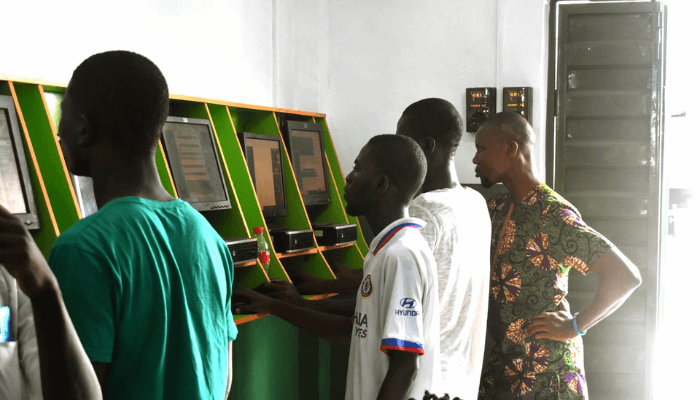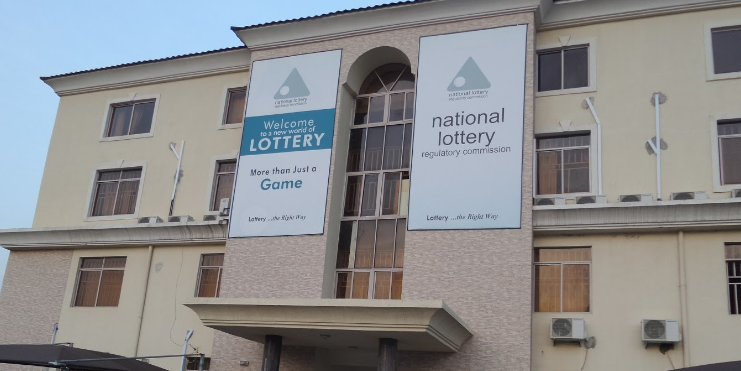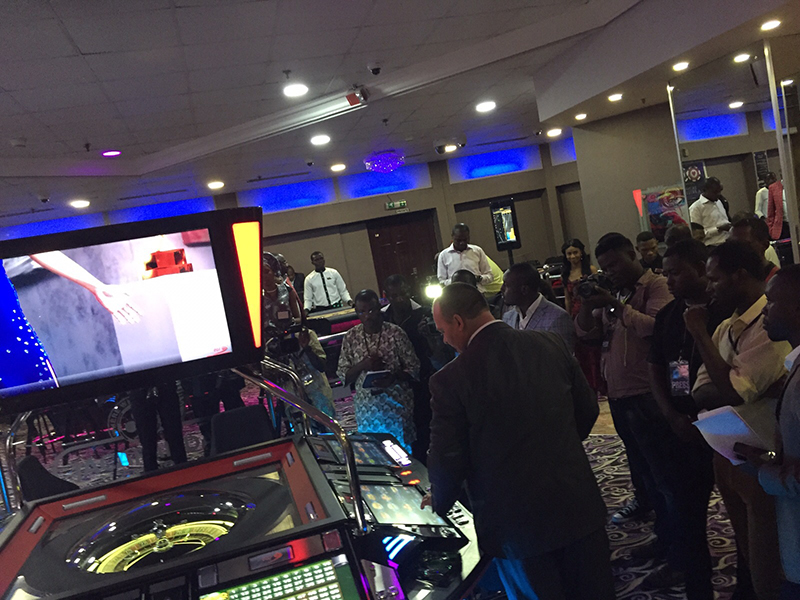
Gambling in Nigeria has become a significant part of the entertainment industry, offering a variety of options for those looking to try their luck. From sports betting to lottery and casino games, the gambling landscape in Nigeria is diverse and continues to grow. However, it's crucial for gamblers to understand the legal aspects of gambling in Nigeriaand the framework that governs these activities to ensure they are participating responsibly and legally.
Online Gambling And Regulation
The digital era has ushered in a new wave of gambling practices, with online gambling taking center stage. In Nigeria, as in many other countries, the convenience and accessibility of internet betting have led to a significant increase in gambling activities. However, the legal framework governing these activities remains a complex and often unclear landscape.
The Absence Of Specific Online Gambling Laws
Nigeria's legal systemhas yet to catch up with the rapid growth of online gambling. There are no specific laws that directly regulate the operation of online casinos, sports betting, and other forms of internet gambling within the country. This lack of specific legislation creates a grey area where the legality of certain online gambling activities is open to interpretation.
The existing laws, such as the National Lottery Act of 2005, were enacted before the online gambling boom and therefore do not address the unique challenges that come with internet betting. As a result, many online gambling operators work in a regulatory limbo, often obtaining licenses from foreign jurisdictions to offer their services to Nigerian gamblers.
The Challenge Of Under-Age Gambling
One of the most pressing concerns with the rise of online gambling is the issue of under-age gambling. The anonymity and easy access provided by the internet make it difficult to enforce age restrictions. Unlike physical betting shops where identification can be checked, online platforms can struggle to verify the ages of their users effectively.
This challenge is not unique to Nigeria; it is a global issue that requires innovative solutions. However, the absence of stringent regulation in Nigeria means that the problem may be more pronounced, with fewer safeguards in place to protect minors from the potential harms of gambling.
The Need For Age Verification Processes
To combat under-age gambling, there is a critical need for robust age verification processes. These systems must be capable of accurately determining the age of online gamblers to prevent minors from accessing gambling services.
Implementing such processes would require cooperation between regulators, gambling operators, and technology providers. It would also necessitate updates to the legal framework to mandate the use of age verification technology and to penalize operators who fail to comply with these requirements.
The introduction of effective age verification measures would not only help to protect minors but would also bring Nigeria's online gambling industry in line with international best practices. It would demonstrate a commitment to responsible gambling and could pave the way for more comprehensive regulation of the online gambling sector.
The Impact Of Gambling On Society
Gambling in Nigeria, like in many other countries, has a significant impact on society. The prevalence of gambling activities, especially with the advent of mobile betting, has changed the patterns of gambling behavior among Nigerians. While some view gambling as a harmless form of entertainment and a potential source of income, others are concerned about the gambling-related harms and the broader public health concerns it raises.
Prevalence And Patterns Of Gambling
In Nigeria, gambling has become a widespread activity, with sports betting being particularly popular among the youth. The ease of access to betting platforms through smartphones has led to a surge in the number of people engaging in gambling. This increase is not limited to urban areas; it is also evident in rural regions where mobile connectivity has improved.
Sports betting shops and online platforms have become common, and the allure of winning big with small stakes attracts a diverse group of individuals. The patterns of gambling show a trend towards frequent, small bets, often on football matches, which is the most followed sport in the country.
Gambling-related Harms And Public Health Concerns
The growth of gambling in Nigeria has not come without its downsides. Gambling-related harms can manifest in various ways, including financial distress, relationship issues, and mental health problems such as anxiety and depression. The societal costs can be significant, with families and communities often bearing the brunt of an individual's gambling problem.
Public health concerns arise when the negative consequences of gambling affect a substantial portion of the population. In Nigeria, there is a lack of comprehensive data on the extent of gambling harms, but anecdotal evidence suggests that it is an issue that needs attention. The absence of targeted public health campaigns and preventive measures means that the potential risks associated with gambling are not being adequately addressed.
Problem Gambling And Lack Of Treatment Services
Problem gambling, or gambling addiction, is a serious condition that can lead to severe personal and social consequences. In Nigeria, as in many other places, there is a stigma associated with admitting to a gambling problem, which can prevent individuals from seeking help. Moreover, there is a scarcity of treatment services and support groups dedicated to helping those affected by problem gambling.
The lack of specialized services means that many individuals do not receive the help they need to overcome their gambling issues. This gap in the support system can lead to a cycle of addiction, with problem gamblers finding it difficult to break free from the compulsion to gamble despite the negative impacts on their lives.
Moving Forward - Regulation And Responsible Gambling
To mitigate the impact of gambling on society, it is crucial to enforce existing laws and regulations more effectively. This includes ensuring that gambling operators adhere to fair play standards and that there are mechanisms in place to protect vulnerable individuals, such as minors and those with gambling problems.
Promoting responsible gambling practices is another essential step. This involves educating the public about the risks of gambling, encouraging moderation, and providing information on where to seek help if gambling becomes a problem. Operators can also play a role by implementing features such as self-exclusion programs and setting limits on betting amounts and frequency.
The potential for a public health approach to gambling issues is an area that warrants further exploration. Viewing gambling as a public health issue would involve a more holistic strategy that considers the social determinants of gambling behavior and addresses the wider societal impacts. This approach could lead to more effective interventions and a reduction in gambling-related harms.
The debate on gambling as a public health issue is ongoing. While some argue that gambling should be treated as any other economic activity, others believe that the potential harms necessitate a more cautious and regulated approach. What is clear is that as the gambling landscape in Nigeria continues to evolve, so too must the strategies to manage its impact on society.
Enforcement Of Existing Laws And Regulations
The National Lottery Regulatory Commission (NLRC) plays a pivotal role in overseeing gambling activities in Nigeria. However, the effectiveness of this body hinges on its ability to enforce the laws and regulations that govern the industry. To safeguard the integrity of gambling in Nigeria, it is crucial that the NLRC is empowered with the necessary resources and authority to monitor gambling operators and ensure compliance with the National Lottery Act, 2005.
Illegal gambling activities continue to pose a challenge, and it is imperative that law enforcement agencies collaborate with the NLRC to crack down on unlicensed operators. This collaboration can help create a safer gambling environment, where players are protected and revenues from legal gambling can be properly taxed and used for public good.
Promoting Responsible Gambling Practices
The promotion of responsible gambling is vital to prevent the escalation of gambling-related harms. Operators should be encouraged, if not mandated, to include clear information on the risks of gambling and provide tools to help gamblers manage their behavior. These tools may include:
- Self-exclusion programs
- Deposit limits
- Time-out periods
- Reality checks
Educational campaigns can also raise awareness about the potential negative effects of gambling and provide information on where to seek help if needed. By fostering a culture of responsible gambling, the industry can help reduce the incidence of problem gambling and its impact on individuals and society.
The Potential For A Public Health Approach To Gambling Issues
Adopting a public health approach to gambling issues could significantly alter the way these challenges are addressed. This perspective considers the broader social and economic factors that contribute to problem gambling and seeks to implement community-wide strategies to promote health and well-being.
Such an approach might include:
- Research into the prevalence and patterns of gambling
- Studies on the socioeconomic impacts of gambling
- Community education programs
- Support services for those affected by problem gambling
By understanding gambling as an issue that affects public health, policymakers can develop more comprehensive strategies that go beyond regulation and aim to improve the overall health of the community.
The Debate On Gambling As A Public Health Issue
The notion of gambling as a public health concern is gaining traction. This debate centers on the idea that gambling, much like substance abuse, can lead to addiction and other serious health consequences. As such, there is a growing call for policies and interventions that address gambling in the same way as other public health challenges.
Proponents argue that a shift towards a public health model would lead to better outcomes, not just for individual gamblers, but for society as a whole. It would encourage a more holistic view of the causes and consequences of problem gambling and promote a more inclusive and preventative approach to managing the risks associated with gambling.
Global Perspective
The global popularity of online casinosas an entertaining hobby has expanded beyond their origins in Europe and the USA. In recent times, internet casinos have reached Africa, allowing individuals from across the continent, including Nigeria, to indulge in this enjoyable pastime. You can learn more in StationZilla.
Legal Aspects Of Gambling In Nigeria - FAQs
Is It Legal To Gamble In Nigeria?
The legal framework in place makes a clear distinction between games of skill, permitted under the law, and games of chance, which are prohibited. Gambling activities such as lotteries, land-based casinos, and sports betting fall within the legal spectrum. In contrast, games like roulette, dice games, and card games lacking a skill element are deemed illegal.
How Much Is Gambling License In Nigeria?
The cost of a gambling license in Nigeria, specific details may vary, and it's advisable to contact the National Lottery Regulatory Commission(NLRC) or relevant authorities for the most up-to-date information.
What Are The Illegal Gambling Methods?
Illegal gambling methods in Nigeria may include unlicensed and unregulated operations that do not adhere to the country's gambling laws. These can involve unauthorized online platforms, underground betting, and other activities that circumvent legal regulations. It's important to engage in gambling activities only with licensed operators to ensure a legal and secure experience. For the latest information, consider consulting local legal resources or authorities.
Conclusion
The legal landscape of Nigerian gambling is complex and multifaceted. As the industry evolves, so too must the strategies used to regulate and manage it. By focusing on the enforcement of laws, promoting responsible gambling, and considering the potential for a public health approach, Nigeria can create a safer and more sustainable gambling environment. This forward-thinking perspective is not just about mitigating risks—it's about ensuring that the gambling industry can operate in a way that is beneficial to all, from individual gamblers to the broader society.



